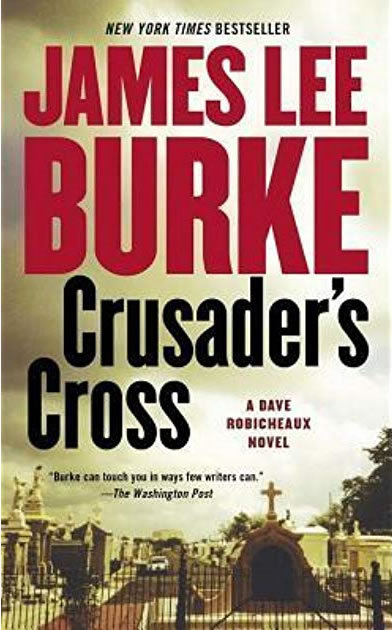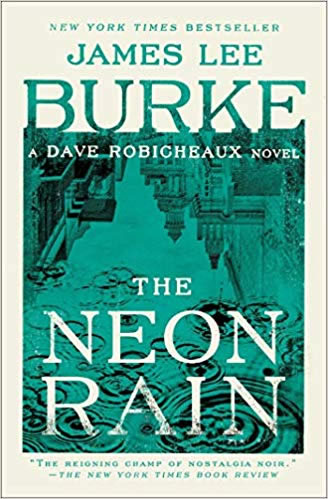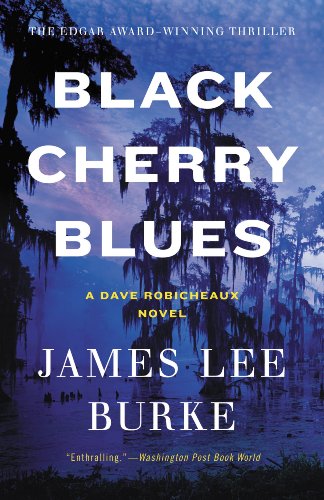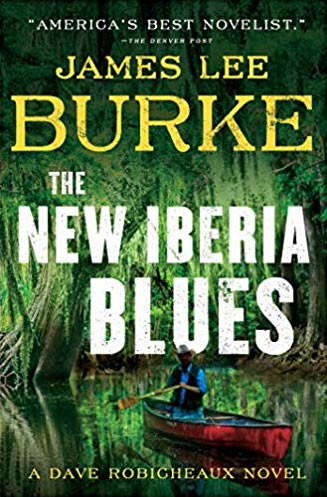
 Crusader’s Cross – James Lee Burke Simon & Schuster; Reissue edition (July 12, 2005) 337 pages.
Crusader’s Cross – James Lee Burke Simon & Schuster; Reissue edition (July 12, 2005) 337 pages.
The story starts out in a flashback with Dave and his brother Jimmy spending the summer of 58 in Galveston where they were rescued from the surf by a girl… who is eventually taken and subsequently disappears. Later, in the current time frame, a former classmate of Dave’s, who’s path in life is to run into trouble inevitably finds it and on his deathbed has a confession he gives to Dave, his uncle, formerly a sheriff’s deputy, had been involved in the girl’s disappearance back in 58.
Dave is reluctant to visit ghosts of the past until an incident where two corrupt sheriff’s deputies take a forceful interest in what might have been said to Dave by an old school chum. Meanwhile, a series of killings has taken place in the suburbs surrounding New Orleans with one of the bodies discovered in New Iberia parish where Dave has just been rehired by the sheriff’s department.
So, while Dave is officially looking into the current homicide he’s conducting a reluctant parallel, personal investigation into the past. Which is not something that a wealthy powerful old family wants to have happen. And Dave does not react well to the intimidation tactics of people in power.
In this novel Dave is constantly making bad choices that have serious repercussions for those around him. His reckless encounter with a genteel belle whom he used to know inadvertently corrupts a crime scene. He meets openly, in public, with a witness willing to talk and she subsequently turns up dead. And a verbal confrontation he orchestrates in a posh restraunt turns into an assault and leads to Cletus offering to help his perjured witnesses.
Its not only incredible how Dave turns this around… its miraculous!
“The problem isn’t just the beef at Clementine’s. Its you Dave. You don’t like rules and you hate authority. You wage a personal war against guys like Val Chalons and take the rest of us down with you. No amount of pleading with you works. People are tired of following you around with a dustpan and broom.”
“I’ll clean out my desk,” I said.
“You force your friends to hurt you, Dave. I think that’s a sickness. But you act like it’s funny,” she said.



